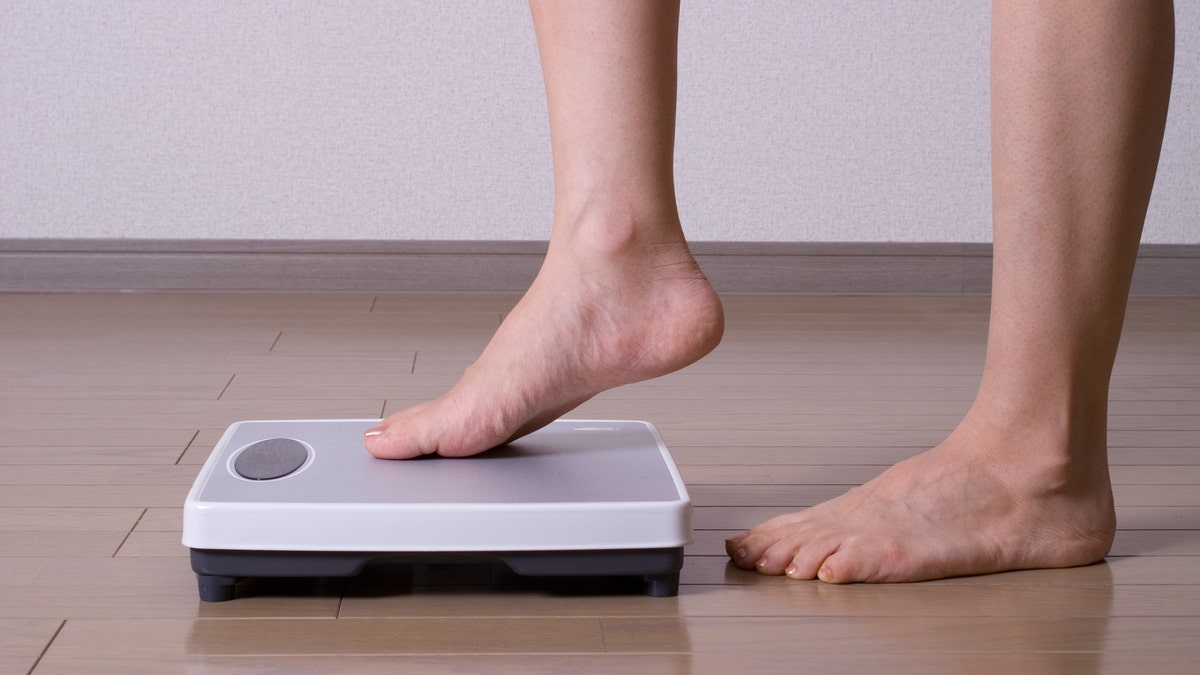
Woman stepping on scales and weighing herself (iStock)
We already know eating less — and eating well — may help reduce the risk of chronic diseases like obesity, diabetes, heart disease and even cancer. But could limiting caloric intake help stall the aging process overall? According to research published this month in the journal Mollecular & Cellular Proteomics, that may very well be the case — and the results may be more effective than your local drugstore’s most expensive moisturizer.
In a mice study, researchers at Brigham Young University found that when ribosomes, which generate cells’ proteins, slow down, aging slows as well. Reducing calorie consumption in the mice was enough to slow that production.
For the study, the authors gave one group of mice unlimited access to food yet restricted the caloric intake of the other group by 35 percent. Both groups received the necessary nutrients for survival.
“When you restrict calorie consumption, there’s almost a linear increase in lifespan,” senior author John Price, a biochemistry professor at BYU, said in a release. “We inferred that the restriction caused real biochemical changes that slowed down the rate of aging.”
While the research hasn’t been replicated in humans, researchers said their findings are still relevant as they underscore the importance of taking care of your body.
“Food isn’t just material to be burned — it’s a signal that tells our body and cells how to respond,” Price said. “We’re getting down to the mechanisms of aging, which may help us make more educated decisions about what we eat.”
According to the Centers for Disease Control and Prevention, the best habits to follow for a longer life include drinking alcohol only moderately or abstaining completely, getting adequate exercise, sleeping seven or more hours a day, not smoking, and maintaining a normal body mass index.
And, as for reducing visible signs of aging, Fox News recently learned that the key may already be lying right in your kitchen.
